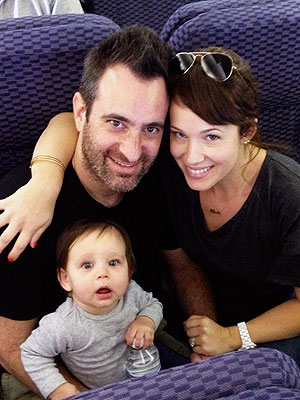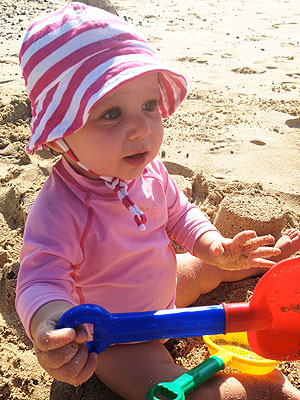TOKYO (Reuters) - Asian shares pulled back from multimonth highs on Monday, while the yen firmed after touching a new low in choppy trade ahead of a Bank of Japan policy decision that is expected to deliver bold monetary easing measures.
The MSCI's broadest index of Asia-Pacific shares outside Japan <.miapj0000pus> edged down 0.2 percent despite pockets of strength in Australia, Hong Kong and Shanghai. The index briefly renewed a 17-1/2-month high touched on Friday following a rebound in global equities late last week on upbeat U.S. and Chinese data, as well as signs of progress in U.S. budget talks.
The Dow Jones industrial average <.dji> and the Standard & Poor's 500 Index <.spx> ended Friday at five-year highs on a solid start to the quarterly earnings season. U.S. markets are closed on Monday for the Martin Luther King Jr. holiday.
"Asian markets are mixed with no dominant theme in place in a fairly quiet start to the week," said Stan Shamu, market analyst at IG Markets. "There hasn't been any economic data to go by in the region and therefore we've had to rely on leads from the weekend for some direction."
Australian shares <.axjo> inched up 0.1 percent to a 20-month high and Hong Kong shares <.hsi> hit a fresh 19-1/2-month peak, but underperformance in smaller bourses, such as a 2.3 percent slump in Malaysian shares <.klse>, dragged the pan-Asian index. A stronger local currency hurt exporters and weighed on South Korean shares <.ks11>.
European markets are seen tracking Friday's U.S. markets higher, with financial spread-betters predicting London's FTSE 100 <.ftse>, Paris's CAC-40 <.fchi> and Frankfurt's DAX <.gdaxi> would open up as much as 0.4 percent. <.l><.eu/>
The BOJ's two-day policy meeting which concludes on Tuesday drew the attention of traders from several markets, with the South Korean won's gains against the yen pulling the exporter-heavy Kospi stock index <.ks11> down 0.1 percent, while gold rose 0.4 percent on expectations for aggressive BOJ easing.
Under growing political pressure to pursue bolder measures to beat deflation, speculation over the BOJ's options ranged from an open-ended commitment to buy assets until a 2 percent inflation target is achieved to simply boosting its asset buying schemes.
"There is attention on the Bank of Japan, which is really being pressured to embark on some very precious metals-friendly policy," said a Hong Kong-based trader. Tokyo's benchmark gold matched a record of 4,911 yen a gram on Monday.
Early on Monday, the dollar touched a fresh 2-1/2-year high of 90.25 yen, and the euro rose to a high of 120.27 yen, near its peak since May 2011 of 120.73 hit on Friday.
But the yen clawed back some of its losses against the dollar and the euro as traders locked in gains ahead of the outcome of the BOJ meeting. The dollar slipped back to a low of 89.42 yen and was last trading at 89.57 yen, while the euro also fell to a low of 119.08 and last traded at 119.27 yen.
"Profit taking pushed the dollar and the euro down against the yen but short covering lifted them off their lows. Trading is thin and quite volatile. I don't think there will be any clear direction until the BOJ decision," said Yuji Saito, director of foreign exchange at Credit Agricole in Tokyo.
Saito said "sell the fact" behavior could push the dollar down about 1 yen, but a serious disappointment on the BoJ outcome was unlikely.
Tokyo's benchmark Nikkei average <.n225> tumbled 1.5 percent as investors booked profits from the Nikkei's 2.9 percent rally on Friday, its biggest daily gain in 22 months. The Nikkei posted a 10th straight week of gains, its longest since 1987. <.t/>
Many investors largely keep short position on the yen.
"We expect the door for further easing will likely be left open irrespective of the outcome of BoJ policy meeting, either explicitly by the BOJ or implicitly through government's plan to nominate doves to replace the governor and deputy governors," Barclays Capital said in a note to clients.
Friday's data showed while currency speculators slightly cut their bets against the yen in the week to January 15, they remained overwhelmingly negative on the currency.
Asia hedge funds 2012: http://r.reuters.com/jyr35t
China GDP: http://link.reuters.com/zeq95s
Algeria's attack site: http://link.reuters.com/myn35t
Gold/USD correlation: http://r.reuters.com/ryx52s
^^^^^^^^^^^^^^^^^^^^^^^^^^^^^^^^^^^^^^^^^^^^^^^^^^^^^^^^^>
Oil prices took their cues from a weak consumer sentiment report in the United States, which showed a drop to the lowest in a year in January as a result of the uncertainty surrounding the country's debt crisis.
Concerns about demand overshadowed supply disruption fears, reinforced by the Islamist militant attack and hostage-taking at a gas plant in Algeria, a member of the Organization of Petroleum Exporting Countries.
U.S. crude futures fell 0.5 percent to $95.08 a barrel while Brent fell 0.3 percent to $111.55 early on Monday.
(Additional reporting by Ian Chua and Thuy Ong in Sydney and Rujun Shen in Singapore; Editing by Shri Navaratnam)














